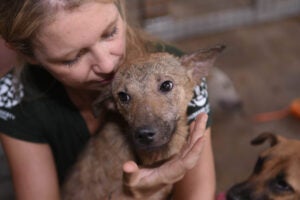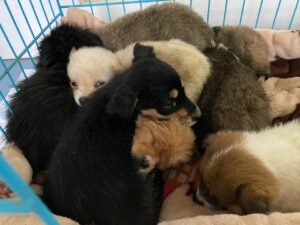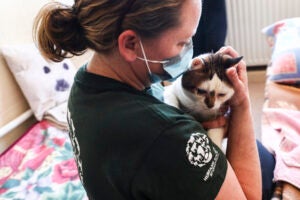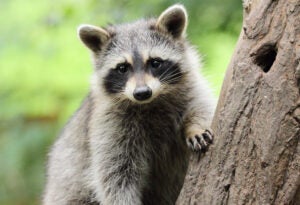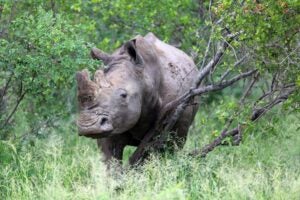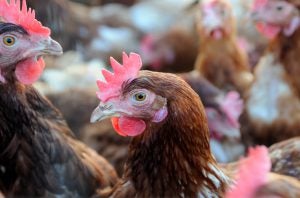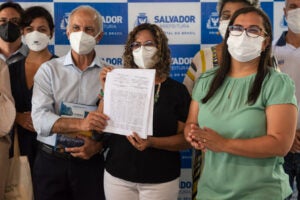
SALVADOR—The municipality of Salvador signed a cooperation agreement with Humane Society International and Mercy for Animals, through the Conscious Eating Brazil (ACB) program to launch the Educating for Sustainability program in municipal schools. The initiative, will impact more than 10 million meals a year in municipal schools, providing new, tasty and healthy options on the menu of 170,000 students, who will have more vegetables, legumes, grains and fruits on their plates.
The recipes were developed according to the needs of the institutions and the acceptance of students, also considering the food culture of the region, the infrastructure of the kitchens and the regulations that the institutions must follow, according to the National School Feeding Program. Participating institutions are encouraged to prepare meals only with in-natura ingredients
“By making this inclusion on the menu of institutions that serve meals on a large scale, such as schools and popular restaurants, we were able to significantly contribute to a systemic change in food culture, in addition to influencing an individual change in consumption for those who have the power to choose their food,” says Alice Martins, manager of Food Policies at Conscious Food Brazil in a statement translated from Portuguese into English.
The organizations created these programs to meet the demands and needs of public institutions that serve meals on a large scale. At no cost to the partner institution, these organizations offer the support of a team of nutritionists, chefs and specialized professionals who provide menu development, theoretical training in nutritional and environmental education and practical training in plant-based meal preparation. In addition, all professionals in the municipality involved in the program implementation process receive printed and virtual nutritional and environmental education materials to support a successful implementation. The organizations provide ongoing support after the program is in place.
“The idea is to instill and create long-term changes in students’ eating habits. Today in Brazil we know that children, mainly from the poorest strata of the population, which is the target public of the municipal school system, do not consume the recommended servings of fruit and vegetables, and protein sources are concentrated on products of animal origin, so our proposal is that we can encourage our children to form a healthier palate for the rest of their lives,” says Municipal Secretary of Education, Marcelo Oliveira, in a translated statement.
“The objective is for municipal schools to easily include menu options with a greater variety of plant foods, such as fruits, vegetables, legumes and cereals, which form the basis of a healthy diet, according to the recommendations from the Ministry of Health, through its Food Guide for the Brazilian Population, and the World Health Organization,” says Thayana Oliveira, manager of Food Policies at HSI in Brazil.
The commitment will also help Salvador achieve critical climate, sustainability and health goals set by international and Brazilian authorities. After the program is implemented in all municipal schools, the city will receive the International Seal of Leadership in Health and Sustainability, recognizing its role and commitment to advancing and mitigating climate issues through healthy and sustainable eating. The program will also move the municipality closer to achieving five of the United Nation’s Sustainable Development Goals and achieve goals 2, 7 and 26 of the Climate Change Mitigation and Adaptation Plan developed by the municipality in an intersectoral manner.
“The program meets management objectives and will be a stimulus for our Climate Change Mitigation and Adaptation Plan, which aims to neutralize greenhouse gas emissions by 2049 in the municipality. In addition, it will promote healthy eating habits among students, with an increase in the consumption of vegetables, fruits, and other items of plant origin, highlighted the Secretary of Sustainability and Resilience, Edna França, in a translated statement.
According to estimates of the scientific methodology used by ACB and HSI for the environmental impact, annually, the partnership will contribute to:
- a savings of 50,000 tons of soy that will no longer be destined for livestock, enough to feed about 1.3 million adults for one year;
- the preservation of 16,000 hectares of forests preserved, the equivalent of 16,000 football fields;
- a savings of 400 million liters of water, equivalent to more than 3 million 15-minute showers;
- the elimination of 75,000 tons of CO2 that would have been emitted, equivalent to about 575 million km not driven by car.
To learn more about ACB and HSI and learn about the resources offered free of charge to public institutions, visit alimentacaoconsciente.org and carnesdaterra.org.
ENDS
Media contacts:
- ACB: Leandro Becker, communication director: leandrob@mercyforanimals.org; +5511 95339-8734
- HSI: Thayana Oliveira, food policy manager: toliveira@hsi.org; +5531 98484-4890


